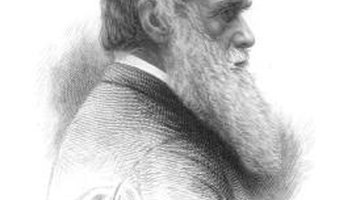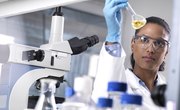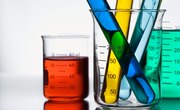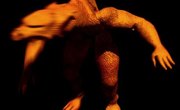The word "theory" is often heard in science, but the way scientists use it is different from the way it's used in everyday conversation. When you say a theory, you probably mean a hunch or a guess. In science, by contrast, a theory is an explanation for the way reality works that has considerable supporting evidence. For a theory to be accepted, it must first pass the test of experiment and observation not just once but many times.
Hypothesis, the First Step
The word "hypothesis" in science is somewhat closer to the everyday use of the word "theory." A hypothesis is the first step along the path toward a theory. It's an educated guess about the way reality works, usually based on an interesting experimental result or observation. A hypothesis must be testable, meaning there has to be some way you can experimentally test it to see if it holds true. The claim that bacteria which are exposed to low levels of an antibiotic tend to become resistant through evolution by natural selection, for example, is a hypothesis, because you can design experiments to see whether that really happens in practice. If you claim, on the other hand, that evil spirits protect bacteria that are exposed to low levels of an antibiotic, this is not a scientific hypothesis because there is no experiment you could design to determine whether these evil spirits are truly involved.
Test It With Experiments
Assuming a hypothesis meets the necessary criteria, scientists will test it by experiment. If numerous experiments and observations are consistent with the hypothesis, the hypothesis may eventually come to be called a theory, indicating it is consistent with all the available evidence and is now widely accepted. What distinguishes a theory from a hypothesis, in other words, is that a theory has been repeatedly tested using different kinds of experiments and been found valid in every case thus far.
Laws and Facts
A theory is different from both facts and laws. A fact is something you have observed and is therefore unquestionably true, but it doesn't explain anything in and of itself. To say that the sky is blue, for example, is a fact, but not a fact that explains anything. A law, by contrast, is a far-reaching description of the way reality works, but it doesn't in and of itself explain why things work that way. The first law of thermodynamics, for instance, says that energy can neither be created nor destroyed, but it doesn't explain why this is true -- only that this is what we have always observed. A theory tries to explain why things work the way they do and backs this explanation up with experimental evidence.
Disproving a Theory
Truth in science is never final but is always subject to modification and revision. Sometimes a theory may come to be widely accepted, but then a new experiment or observation may provide evidence inconsistent with the theory and force scientists to discard it in favor of a new explanation. It just takes one experimental result inconsistent with a theory to show the theory is wrong, but a thousand experiments can't prove the theory is right. The more experiments that are consistent with a theory, however, and the more evidence that accumulates to suggest the theory is true, the more confident scientists can be about its validity and usefulness.
Related Articles
References
Writer Bio
Based in San Diego, John Brennan has been writing about science and the environment since 2006. His articles have appeared in "Plenty," "San Diego Reader," "Santa Barbara Independent" and "East Bay Monthly." Brennan holds a Bachelor of Science in biology from the University of California, San Diego.











